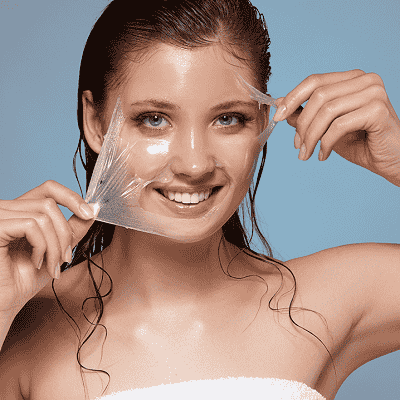Chemical Peels During Oman's Summers: Is It Safe?
Introduction
Chemical peels are a popular cosmetic treatment designed to improve skin texture, tone, and overall appearance. They work by exfoliating the outer layers of skin to reveal a fresher, rejuvenated layer beneath. However, when considering chemical peels in a hot and sunny climate like Oman, especially during the summer months, certain factors need to be carefully evaluated. This article explores the safety of Chemical Peels Oman during intense summers, along with precautions and alternative options.

Understanding Chemical Peels
Chemical peels use various acids, such as alpha-hydroxy acids (AHAs), beta-hydroxy acids (BHAs), or trichloroacetic acid (TCA), to exfoliate the skin. They vary in intensity and depth:
- Superficial Peels: Mild peels that target the outermost layer of skin. These are often used for treating mild acne, fine lines, and dull skin.
- Medium Peels: Penetrate deeper layers of the skin, addressing issues like pigmentation and moderate wrinkles.
- Deep Peels: Intense treatments for severe skin issues such as deep scars or sun damage. These require a longer recovery period.
While chemical peels can yield remarkable results, their effectiveness depends on the type of peel used and adherence to post-treatment care.
Unique Challenges of Oman's Summer Climate
Oman’s summer is characterized by intense heat, high humidity in coastal areas, and an abundance of sunlight. These conditions can complicate the healing process after a chemical peel. Key challenges include:
- UV Exposure: Direct sun exposure can intensify post-peel sensitivity, increasing the risk of hyperpigmentation or burns.
- Heat and Sweat: Excessive sweating can irritate peeling skin, potentially leading to infections or delayed healing.
- Dry Air in Desert Areas: The arid environment can exacerbate post-peel dryness and discomfort.
Risks of Chemical Peels in Summer
Performing chemical peels during summer months in Oman can pose several risks if proper precautions aren’t taken:
- Increased Sensitivity to Sunlight: Peeling removes the protective outer skin layers, making the skin highly susceptible to UV damage.
- Higher Risk of Hyperpigmentation: Inadequate sun protection can lead to uneven skin tone or dark spots after treatment.
- Slower Healing: Heat and environmental factors may delay the recovery process, especially for medium and deep peels.
- Discomfort: Heat and humidity can exacerbate irritation, redness, and peeling.
Precautions to Take for Safe Treatment
If you choose to undergo a chemical peel during the summer, adopting a diligent pre- and post-treatment routine is essential. Here are the recommended steps:
Pre-Treatment Precautions
- Consult a Specialist: Ensure the procedure is supervised by a qualified professional.
- Skin Preparation: Use mild exfoliants and avoid heavy sun exposure for at least two weeks before the peel.
- Choose the Right Peel: Opt for superficial peels that require minimal downtime and recovery.
Post-Treatment Care
- Avoid Sun Exposure: Stay indoors during peak sun hours and wear a broad-spectrum sunscreen with an SPF of 50 or higher.
- Protective Clothing: Use wide-brimmed hats and UV-protective sunglasses when outdoors.
- Moisturize and Hydrate: Keep the skin moisturized with recommended products and drink plenty of water to aid healing.
- Avoid Harsh Products: Refrain from using scrubs, retinol, or other strong skincare products until the skin heals completely.
When to Postpone Chemical Peels
There are times when delaying a chemical peel might be a better option, such as:
- Severe Sunburn or Skin Sensitivity: Wait until the skin is fully healed before undergoing treatment.
- Inability to Avoid Sun Exposure: If your routine requires extended outdoor activity, it’s better to postpone the procedure until cooler months.
- Existing Skin Conditions: Those with active eczema, psoriasis, or similar conditions should seek alternative treatments.
Alternatives to Chemical Peels During Summer
If the risks outweigh the benefits, consider other treatments that are safer during Oman’s summer:
- Hydrafacial: A non-invasive treatment that deeply cleanses and hydrates the skin without extensive peeling.
- Microneedling: Stimulates collagen production with minimal surface disruption.
- Vitamin C Serums: Brighten the skin and reduce pigmentation without increasing sensitivity.
Conclusion
While chemical peels can provide significant skin benefits, their safety during Oman’s scorching summer requires careful planning and strict adherence to protective measures. Choosing the right type of peel, minimizing sun exposure, and following post-treatment care are essential to achieving the desired results without complications. For those who are unable to meet these precautions, postponing the treatment or opting for gentler alternatives can ensure healthy and radiant skin all year round.By making informed decisions and consulting with qualified professionals, you can enjoy the benefits of chemical peels while safeguarding your skin against the harsh summer climate.
